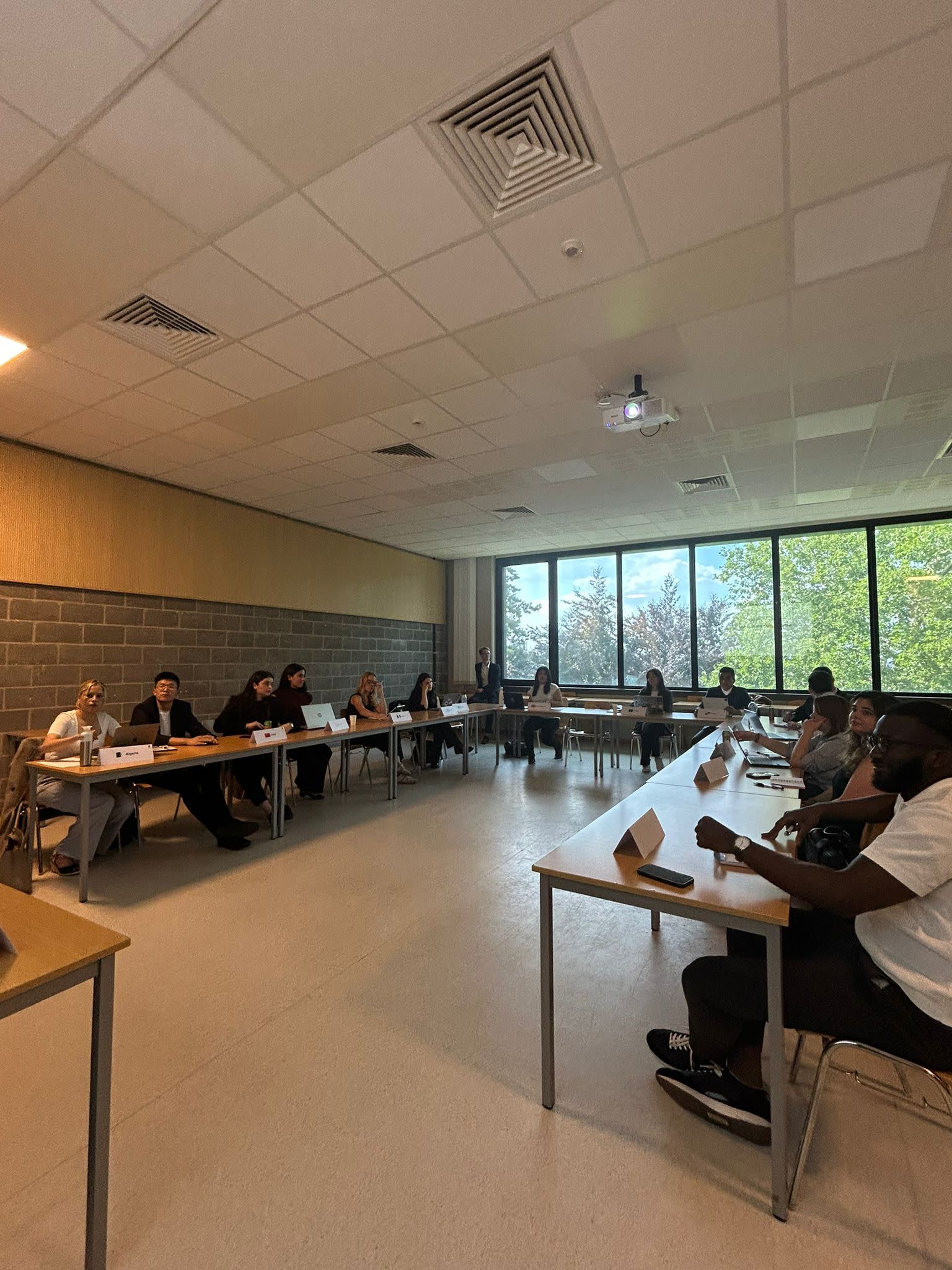Study Week Day 3 : International Organizations

On the third day of our Study Week, we delved into the essential mission and intricate inner workings of international organizations, gaining a deeper appreciation for their pivotal role in shaping global cooperation and safeguarding humanitarian principles.
Morning Session : Belgian Red Cross on International Humanitarian Law
We inaugurated the day with a compelling and enlightening presentation. of the Croix‑Rouge de Belgique (CRB), one of the thirteen national societies within the global Red Cross and Red Crescent Movement alongside the ICRC and IFRC.
They explained to us their dual mandate . Firstly during peacetime, the CRB devotes itself to education and prevention ( disseminating the Geneva Conventions and their Protocols ) training civilians, armed forces, and NGOs, and fortifying Belgium’s capacity to uphold humanitarian norms. Secondly ,when conflict erupts, the Society’s resources pivot to implementation: providing relief to civilian and military victims, ensuring strict adherence to the principle of proportionality, and advising Belgian authorities on the application of the law.
M. Frédéric Casier, Legal Adviser in International Humanitarian Law for the French‑speaking branch of the Belgian Red Cross, engaged participants in a lively discussion about the Movement’s core values and field operations.Most importantly , he highlighted the urgent challenges posed by emerging technologies (most notably autonomous weapons) and made a compelling case for updating humanitarian law to govern artificial intelligence in conflict.
Afternoon Session : Mini–Model United Nations
After a shared lunch on campus, everyone dove into a mini‑Model UN on “Regulating AI in Military and Peacekeeping Operations.” Each delegate was pre‑assigned a country and given time to prepare.
Positions ranged from calls for strict, binding oversight to proposals for non‑mandatory, industry‑driven innovation guidelines, with many advocating a balanced, moderate approach.The resulting debates were both spirited and collegial, reflecting genuine cooperation as delegates strove to draft and adopt a resolution within a single afternoon.
This rich afternoon wouldn’t have been possible without our dedicated moderators, who guided many first‑time MUN participants through the rules and procedural nuances.
We concluded the day with a warm certificate ceremony, celebrating each participant’s engagement and achievements during the Study Week . The day’s programme not only inspired participants to explore volunteer opportunities with the Red Cross and motivated them to take part in realistic simulation exercises, but also fostered a deeper understanding of humanitarian principles and teamwork.
These activities underscored a vital lesson for aspiring international relations professionals or future diplomats : as AI reshapes twenty‑first-century defense systems, mastery of its legal, ethical, and security implications is no longer optional but essential.

